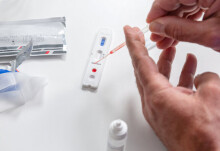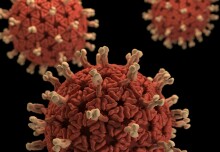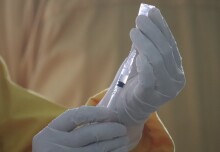

PERSONALISING COVID RISK
Personalising risk from COVID-19 key to protecting immunosuppressed people
New research underscores the need for ongoing COVID-19 protection for people with weakened immune systems.



Personalising risk from COVID-19 key to protecting immunosuppressed people
New research underscores the need for ongoing COVID-19 protection for people with weakened immune systems.


New study to look at how people develop resistance to flu
An international project into flu immunity could help develop better medications and vaccines to prevent severe disease.


Meet the Imperial experts fighting bacterial resistance through innovation
Professor Shiranee Sriskandan and Dr Andrew Edwards shed light on the vital work of Imperial’s Centre for Bacterial Resistance Biology (CBRB).


Pandemic preparedness cannot rely on vaccine development alone
Vaccine experts drew attention to disruption factors around vaccine development and key action plans for future pandemic preparedness planning.


Imperial’s human challenge study helps explain why some people don’t get COVID
New analysis based on Imperial’s COVID-19 human challenge study has helped to uncover how some people avoid getting sick.


Analysis reveals new insights into global surge of Strep A infections
New analysis has revealed more about the origins of the main bacterial strain involved in an increase in lethal cases.


Imperial launches new online courses on virology and vaccinology
A new online Coursera series will explore how viruses infect us, how vaccines protect us and the latest cutting-edge infectious disease research.


T cells may provide more durable protection against Omicron than antibodies
New review suggests T cells are more robust against ‘Omicron breakthroughs’ than antibodies, offering fresh insights for COVID-19 vaccine development.


Imperial celebrates association to Horizon Europe
Imperial brought together our European and global science communities earlier this week to mark the start of the UK's association to Horizon Europe.


Immunosuppressing medicine can be interrupted to boost COVID-19 vaccine response
Interrupting treatment of immunosuppressing medicines for two weeks can significantly improve antibody immunity provided by COVID-19 booster vaccines.